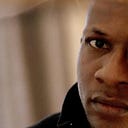On the Blackness of the Panther
‘In my wildest dreams, there is no king. I killed the king. The king is dead. All power to the people.’
Update 6/7/22: Level has a new home. You can read this article and other new articles by visiting LEVELMAN.com.
I began to become African a little over twenty-five years ago. That was when I left Nigeria and moved to the US. I had been born in the US in the summer of 1975 and had been taken to Nigeria in the fall of the same year. For the next seventeen years, Nigeria was home. But I also knew I was American, that the US was a kind of home too, because I had been born there. But was I African? I didn’t feel it. What I felt was that I was a Lagos boy, a speaker of Yoruba, a citizen of Nigeria. The Africans were those other people, some of whom I read about in books, or had seen wearing tribal costumes in magazines, or encountered in weird fictional form in movies.
In the summer of 1992, that began to change. The US provided a contrast to my latent Africanness. “What are you?” “I’m Nigerian.” “Where are you from, man?” “Lagos.” “Leggo my Eggo?” No one had heard of Lagos. I was African, that was the kind of “other” I was. It was news to me, but I didn’t fight back for long. I fell in with others who were in a similar predicament, and began to learn African.

